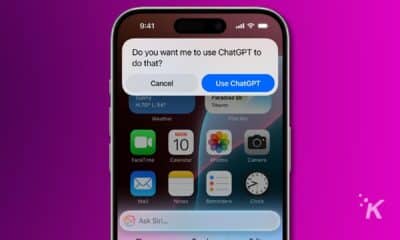Apple
FCC might investigate Apple’s shutdown of Beeper Mini
The FCC commissioner isn’t happy with Apple shutting down Beeper Mini.

Just a heads up, if you buy something through our links, we may get a small share of the sale. It’s one of the ways we keep the lights on here. Click here for more.
Beeper Mini came with a promise for Android users. The app will enable Android users eager to join the “Blue Bubble” team to use iMessage and talk to their iPhone using buddies without being green bubbles.
Regrettably, the supposed ultimate solution was blocked by Apple and rendered ineffective.
However, in a twist of fate, an investigation has been called for to find the justification behind Apple’s recent crackdown.
Apple closed down Beeper Mini in December 2023 due to security concerns; at least, that’s what Apple told the public.
Either way, the standard Beeper service is still available, but it’s not as convenient as Beeper Mini, as it requires access to an iPhone or Mac to work.
According to The Verge, FCC commissioner Brendan Carr has called upon the FCC to investigate Apple’s shutdown of Beeper Mini.
Why Apple should be investigated over the Beeper Mini issue
Carr has even made a post on X/Twitter regarding the matter, stating the following,
Beeper bridged the ‘blue bubble – green bubble’ divide that Apple maintains as part of a broader set of walled garden practices that inhibit competition.
Apple’s wider set of exclusionary practices warrant scrutiny by antitrust and competition agencies, but the FCC should also examine this particular incident through the lens of our Part 14 rules on accessibility, usability, and compatibility.
More accurately, Carr’s concern is iMessage’s green bubble color is low in contrast. Hence, it makes reading difficult. In addition, he acknowledged the platform’s degrading photo and video quality for green bubble users.
I think the FCC should investigate Apple’s conduct with respect to Beeper Mini. Subsequently, Apple made changes to iMessage to disable the functionality of Beeper Mini.
Many of these issues would now be fixed with RCS support inside iMessage. The good news is that Apple plans to bring the messaging standard to iPhones in 2024 to work “alongside iMessage.”
And iOS has a robust set of system-wide accessibility options for those who need or want to use them.
The real issue is that Apple has long used exclusionary tactics to keep its market position, from App Store policies over payment to locking down devices so third-party apps can’t be installed.
Those policies are changing now, but it took concerted efforts from lawmakers around the globe. Android users being able to use iMessage is the next step.
Have any thoughts on this? Drop us a line below in the comments, or carry the discussion to our Twitter or Facebook.
Editors’ Recommendations:
- Beeper Mini app triggers potential DOJ showdown with Apple
- WhatsApp will soon let you sync chat locks across all linked devices
- Max becomes the first to offer NBA All-Star Game in Dolby Vision
- Amazon Prime Video strips Dolby Vision and Atmos from the ad tier































